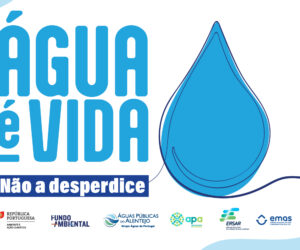Whenever Portugal burns in summer, it is often heard to question: why the crime of forest fire, it is not eradicated forever? And knowing that despite being difficult, it is not impossible to prevent, whatever crime it is, This article aims to present a case of success, which was the eradication of the crime of theft of non-precious metals, that in the early 1990s 2010, constituted a real national security problem..
Colonel of the GNR
Master in Law and Security and Homeland Security Auditor
Between 2010 and 2013 the crime of theft of non-precious metals caused enormous damage to telecommunications and energy distribution companies, without forgetting the farmers, having after 10 year old, ceased to be a national security issue.
Due to the large increase in this type of crime in the early 1990s, 2010 of the 21st century, was the same autonomized in the Annual Internal Security Report (Perhaps) in 2012 and according to the RASI of 2013, were recorded in that year 13.422 crimes, having 2014 there was a decrease for the 8.448 crime, continuing this decrease until 2018, where they appear in the RASI of 2018, 2.260 non-precious metal thefts, with a reduction in five years of 83,2%. And past 10 years the RASI of 2022 do not even make reference to this type of crime
like today, at the beginning of the decade of 2010 the theft of non-precious metals had as its main target, any infrastructure or equipment containing metal, and copper, the one that generates the greatest profits and is therefore called “Red Gold”, although not a precious metal.
Any object or infrastructure that contains copper in its composition is still a potential target for criminals today., may strongly affect a number of structural and essential economic sectors for the country.
The theft of copper target generates an easy profit, because there is still demand for this metal. While precious metals considered, such as gold and silver, They have an intrinsic value for whom steals, as well as any other citizen that values as an object, copper is stolen to be sold in bulk to scrap, obtaining value when reintroduced into the commercial circuit, by recycling.
And as already mentioned, copper theft saw an enormous growth trend in the country between 2010 and 2013, having affected from agricultural properties, through telecommunications and energy distribution operators, where the greatest harm in copper theft results from damage caused, whether direct or indirect, reaching 50 times more than the amount of copper stolen, in other words, for every euro of profit for criminals, causes a loss of 50 euros.
In communication and electricity distribution operators, losses mainly reach consumers, that they have been prevented from communicating and for companies, to develop your activity. In agriculture, thefts on the premises, can mean the difference between a productive year and a year with high losses.
There are several reasons for the copper demand. On the one hand, the global copper market moves, per annum, next to 100 billion, whereas only 30% of the world's needs come from mining activities.
The remaining slice is obtained from recycling and copper is recyclable almost 100%. We emerging markets, como a China ou a Índia, there is a high demand for copper, that you did raise the price of raw materials in international markets.
So, copper value increases, due to high demand in the market and when the copper value increases, grow thefts.
But how was it possible in Portugal for this type of crime to suffer a reduction of 83,2% in five years and past 10 year old, is no longer a national security issue, despite the prevention of this type of criminal occurrence, not be easy due to the wide dispersion of equipment and infrastructure throughout the national territory, aggravated by the fact that they are mostly located in isolated areas and active and passive protection and security measures are costly and difficult to implement.
Also the draining hinders the prosecution of this type of crime, due to the existence of many places of reception and the easy reintroduction in the legal market, especially through exports.
The first step towards eradicating the crime of theft of non-precise metals was to recognize, which it constituted at the time, a serious problem for the national security of the country, and that its combat required a multidisciplinary response, through coordinated action by all police and judicial authorities, as well as civil society and the business community.
This coordination was at the time headed by the GNR, because most thefts of non-precious metals occur in its action zone and because it has implemented a set of actions, which includes the “Programa Campo Seguro”, which served as the launch of the Association for the Promotion of the Safety of Technical Assets (WRITE), created in february 2012 following the signature of the “Campo Seguro” Protocol, between the Ministry of Internal Affairs, represented by GNR, to EDP Distribuição, EDPR, a REFER, the EPAL and the PT, with the aim of establishing an active partnership between all partners, in order to improve the defense mechanisms of its infrastructures, against the theft of non-precious metals.
Within the scope of the “Campo Seguro Program” several events were held, from awareness actions in all the Regional Directorates of Agriculture and Fisheries (MURDER) targeting farmers, as well as holding seminars aimed at waste management operators (scrap metal), as well as repression actions, namely inspections that led to the closure of many illegal scrap yards.
In addition, GNR joined the European project called Pol-PRIMETT in 2010, which is led by the UK's National Crime Agency and brings together partners from 8 Member States of the European Union (EU), and aims to share best practices to combat the theft of non-precious metals, with the GNR being invited to organize the Annual Conference 2014, that took place on the day 15 October, at the Congress Center, in Lisbon and had the participation of 187 delegates of 15 Member States of the EU.
All these actions had their fruits., but it would have been the elaboration of the Lei n.º 54/2012, of 6 of September, which included important contributions from the GNR, that most contributed to the theft of non-precious metals ceasing to be a national security problem in Portugal.
The aforementioned law defines the means of preventing and combating theft and receipt of non-precious metals with commercial value and provides for additional and reinforcement mechanisms within the scope of the supervision of waste management activity., forcing scrap metal to implement a set of measures, such as video surveillance, the obligation of material records and the prohibition of cash payments.
In addition, materials received at scrap yards can only be transformed three working days after their receipt and whenever there is strong evidence of the crime of theft or receipt of non-precious metals., or in case of flagrante delicto, law enforcement authorities may order the temporary closure of facilities.
So, it was possible in five years, the crime of theft of non-precious metals is reduced by 83,2% and after 10 year old, ceased to be a national security issue, as a result of the implementation of a set of measures, who attacked the problem at its source, sustained by legislative changes and initiatives in the field of prevention and repression, based on coordinated action by police and judicial authorities, as well as civil society and the business community, therefore owing the work carried out in the fight against the crime of theft of non-precise metals, be the object of study and replicated in other types of crime, especially in the crime of forest fire.

























